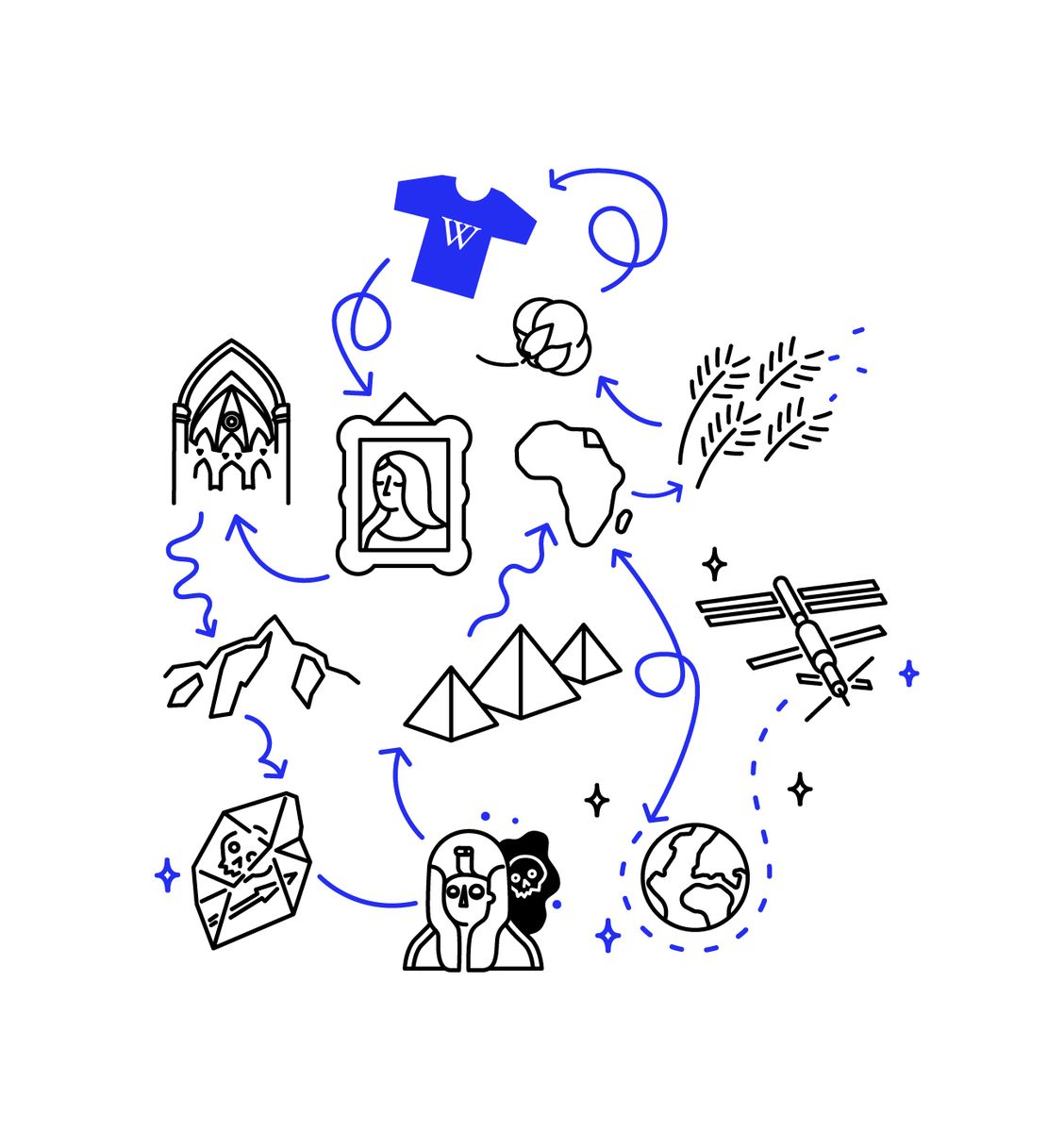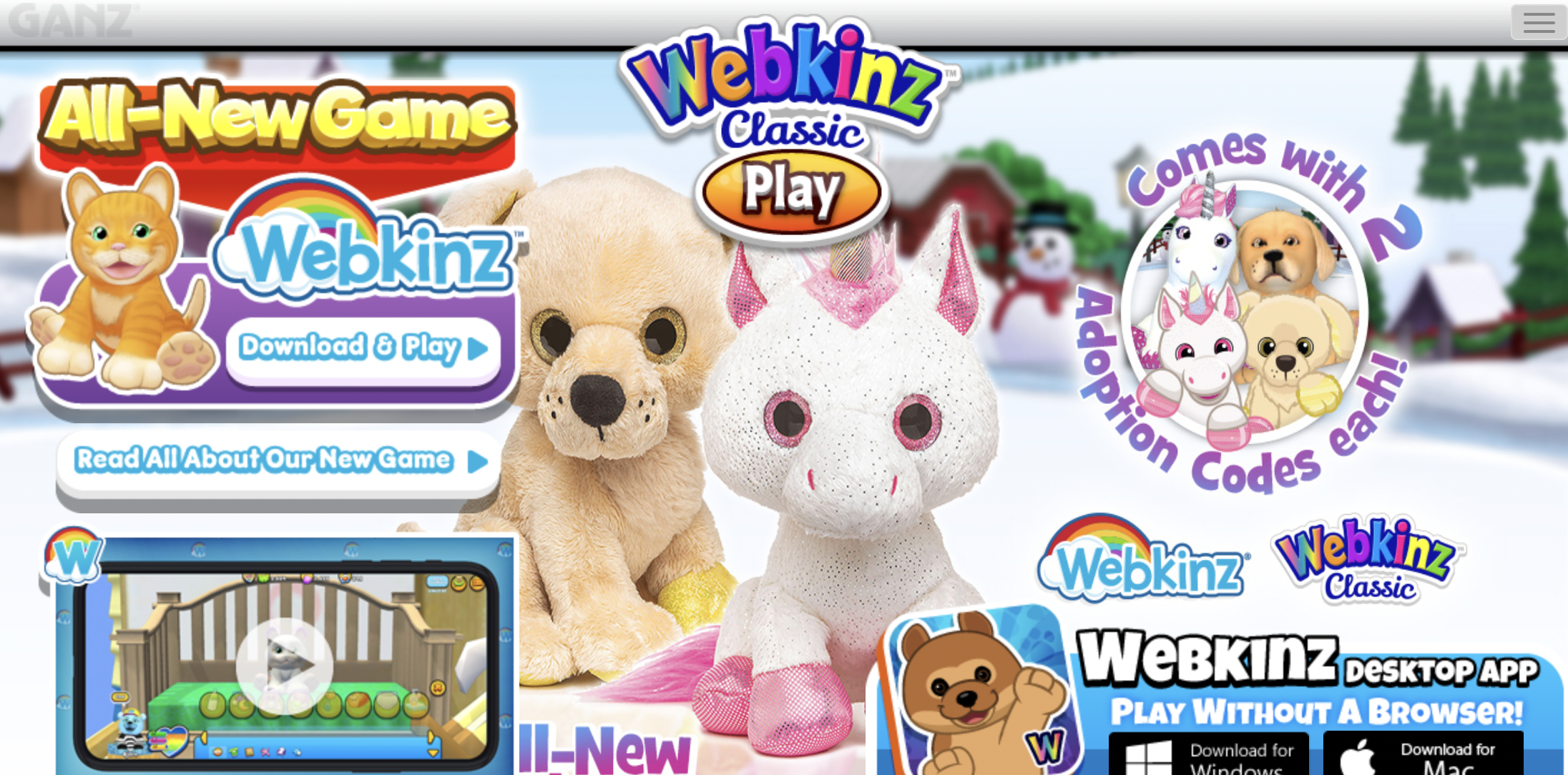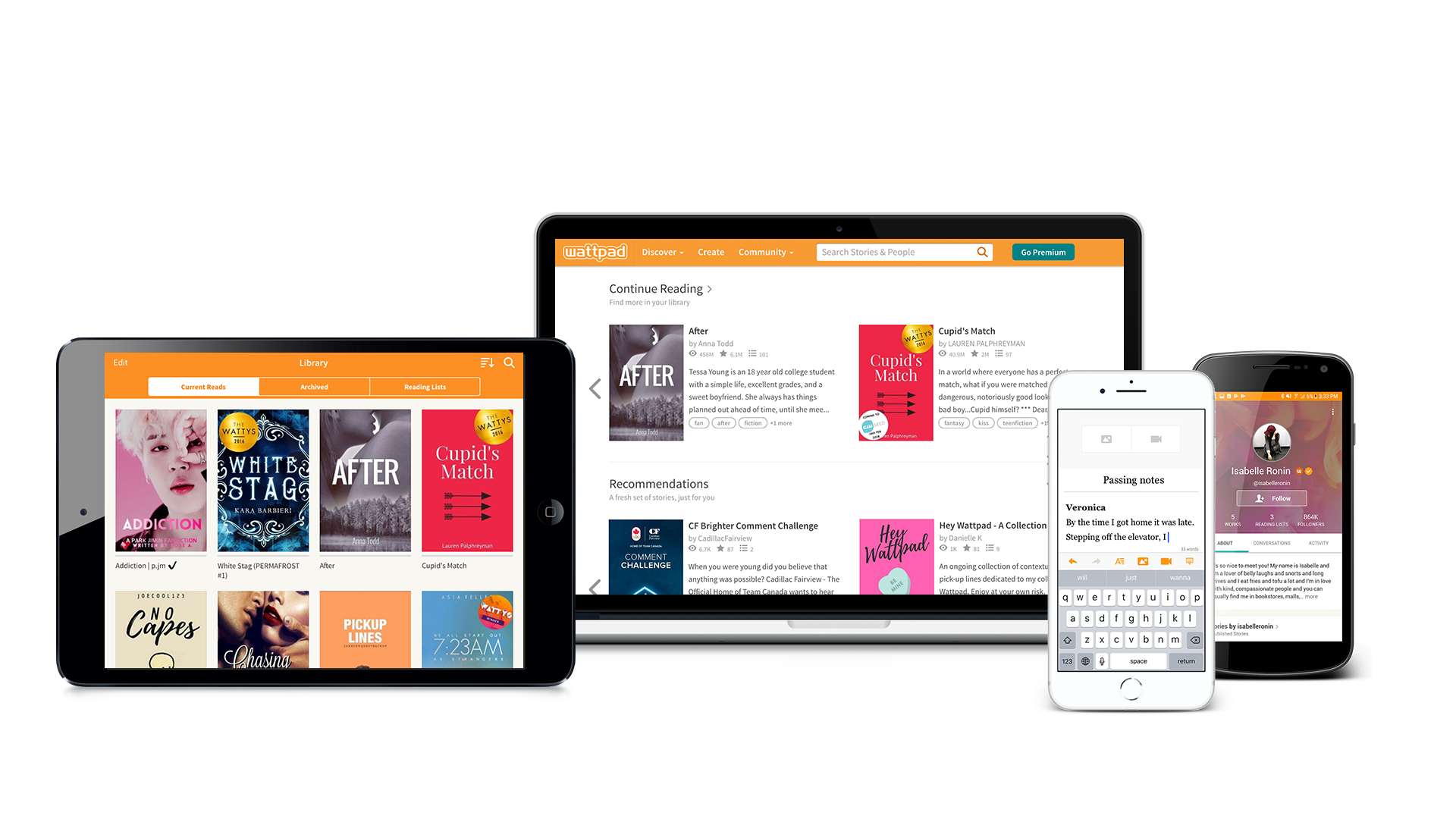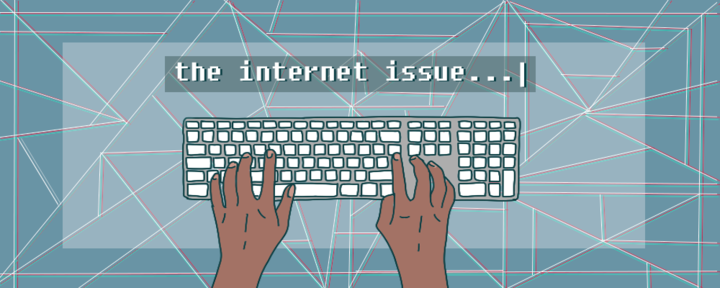The 14 East staff shares our pros and cons of never knowing a society without the World Wide Web and where we still find corners of comfort on the internet.
Living in the age of COVID-19, we’ve found ourselves having to adapt to online reality. “Internet friends” or rather, individuals who we’ve become acquainted with over email, social media, phone calls and Zoom, feel like friends we’ve known our entire lives.
This distant, online friendship has become an ingrained part of our new “normal” and yet, as millennials and zoomers, we’ve grown up with this kind of internet contact for a significant portion of our young lives.
Our lives have been ever intertwined with the World Wide Web, both its darkness and its light. Some of our staff shared their personal reflections of growing up in the age of the internet.
Francesca Mathewes
My relationship with the internet and namely, social media, has been at times difficult and strained. Instagram was a source of much insecurity as a young teenager and as an adult, Twitter is a perfect and dark engine for my “news addiction,” especially during the pandemic. It can be so easy to lose yourself in social media and to lose a sense of who you are –– the person you have worked so hard to become, the experiences you hold true, your curiosities, relationships, inner dialogues.
So, when I found @sighswoon on Instagram, it felt like a new mark in my relationship to social media and the internet. Gabi Abrao, the Los Angeles native who runs the account, is “building a relationship with the invisible,” and her Instagram, podcast and online community have become a comforting corner of the internet for me through the pandemic, especially.
View this post on Instagram
It’s difficult to say, in a few words, exactly what @sighswoon is about. Abrao is, essentially, an influencer and artist, and has a popular Patreon account you can subscribe to for $3.33 for access to her poems, prose, personal updates, rants, thoughts on meditation, spirituality, wellness and art. Much of her content is about doing inner work, manifesting in your life, relationships and generally advice on being more present, more spiritual and creating comfortable physical and intangible spaces for yourself. One of her most well-known trends is the “Digital Resting Point” –– an Instagram trend in which users will post a calming, oftentimes scenic image, with a caption to use your happening upon that post as a “Digital Resting Point” –– a moment to breathe in, take a break, recalibrate. A reminder to make moments for yourself.
View this post on Instagram
It’s not something I’d normally be into. Meditation doesn’t come easy to me and I have long struggled to understand what being “spiritual” really means in my secular adult life. Hell, I’ve hardly been west of the Mississippi, so something like this is a very far and very “L.A” cry from my other media comforts. So call me a sucker, but something about Abrao’s content and the sense of creativity, tranquility and playfulness it brings me is worth logging on for.
Julián Martinez
So, I spent a lot of time on Wikipedia as a kid. I grew up in a very large and tight-knit family, but I wasn’t around a lot of kids my age. Wikipedia was this place where I could disappear for a few hours, going down the kinds of blue-link rabbit holes that many of my generation and I have become accustomed to.
At the time, it felt like sitting in a library, except each page of the book that I was reading contained portals right into other related books — ancient Egyptian history led into the embalming processes, which led into serial killers and so on.

Graphic by Wikipedia user Glennewcomer, licensed under CC BY-SA 4.0.
I never considered it to be a community experience until I realized that other people, who were also sitting at their computers, were adding to and changing around the information that I was reading. This felt really democratic in a way, but also dangerous. If I ever stumbled upon a page, let’s say a celebrity’s biography, and their name had been altered into something crass, or their introductory blurb had been peppered with expletives, it would feel really unsettling.
I guess this was my first exposure to online troll culture, which I think has mostly found its way out of Wikipedia and onto more dangerous platforms. That’s neither here nor there, but the fact that Wikipedia is still as community-based as it is and as (mostly) reliable as it is says something about the original charm of the internet that was so fascinating to me growing up, as well as to how much it relies on cooperation.
Aneesah Shealey
If there’s one thing that I love, it’s Nicki Minaj and TikTok. As a nine-year-old kid, I can remember the first time I watched a YouTube music video of a then little known rapper named Nicki Minaj. “Itty Bitty Piggy,” which samples Soulja Boy’s 2007 heater “Donk” marked the first time that I saw a woman dominate a man’s world.
“Itty Bitty Piggy” is a declaration of the right to assert your confidence and dominance, as well as an iconic debut that sticks in my mind 12 years after its release. Minaj’s continued dominance (and bars about being a hard-working, independent woman) inspired me throughout my adolescence and into my young adulthood. Honestly, I keep a mental altar to St. Nicki for when the going gets rough.
During the coviggidy – what I like to call the pandemic – I have often found myself giggling online at this compilation of Minaj quotes, most of which are circulating on TikTok. In her own special way, St. Nicki has protected my energies during these trying times by inspiring me to joy. When I find myself listening to her music or her humorous yet dramatic quips, I feel ignited in a way. It reminds me to keep pushing for joy, success and confidence.
Claire Malon
My earliest internet memory is from playing Webkinz. I remember hearing from kids at school about Webkinz and going home and begging my parents to buy me one. When they finally gave in and got me one, I proceeded by begging them to let me use the computer to actually play the game. That was back in the very early 2000s when practically every house in America had a designated computer room. My dad, who worked from home and ran his business mostly online, would reluctantly let me spend an hour or so each week on the site playing with Autumn, my virtual orange alley cat.

The Webkinz homepage (via webkinz.com)
Up until that point, my sister and I were never allowed to play on the computer and we surely didn’t own any gaming consoles. So for me, Webkinz was the first real internet game I had ever played, and naturally, I became obsessed. At school, I would coordinate with my friends when to log on at night so we could visit each other’s in-game houses. At home, I would carefully plan out what to buy my tabby from the WShop to make sure her happiness meter stayed filled. I soon became an expert at Polar Plunge and Webkinz SuperModelz, and would visit Arte at the Curio Shop every day without fail.
Webkinz was such a big part of my life at such a formative age that as I grew older, I became nostalgic for those precious times spent with my virtual pet. After my peak Webkinz hayday in 2007-2008, I began playing it again — somewhat ironically — during high school. In history class freshman year, me and all my friends would log onto Webkinz (using the new free accounts) and play all the old games that we were infatuated with as kids. Those early memories of playing the game still, somehow, lived up to the experience of playing it some eight years later.
Now I haven’t been on Webkinz in years — and in fact before this writing, I had to look it up to make sure the site’s still active and not purged from the web like many other childhood classics (the likes of Club Penguin, Fantage and Purble Place to name a few). The fact that the website remains seems a testament to its purity and simple ingenuity. And though the site may very well not live on into perpetuity, the memories and feelings associated with it — for so many of us — likely will.
Bridget Killian
YouTube has been my go-to place on the internet since March of 2020. With little to do while stuck in my house during the start of quarantine, I decided to go to YouTube and just see what videos came up on my homepage. If you know me, you know that I could talk about movies and television for hours and hours. My YouTube homepage seemed to know that too. Most of the recommended videos were commentary videos about various movies and TV series. I had watched some commentary videos before and honestly, I wasn’t a big fan. Whoever was reacting to the show pretty much just sat in the corner of the screen and made faces, but didn’t actually add anything meaningful to the videos. That was until I came across a channel by the name of Dylan is in Trouble.

An assortment of uploads from Dylan’s account.
This channel is run by a 29-year-old Midwestern guy named Dylan and it is honestly one of the funniest and most genuine channels I have come across in a while. Most of his videos are commentaries on movies, but rather than just reacting to them, he actually comments on the direction, acting and dialogue. Dylan’s channel really gave me a space on the internet to relax and just laugh after a long day. The community surrounding the channel is incredibly kind to one another, which is something that rarely happens today. It is a bright spot on the internet when negativity seems to be the norm all too often.
Although lighthearted and simply for entertainment, discussing movies with other people is something I really love to do. While I cannot actually sit down and talk about the movies with YouTubers like Dylan, it is still a great time hearing what they have to say. During the frightening beginning of COVID in the U.S., it was nice to find a place on the internet to just smile and have a good time. Still today, almost a full year later, I still go back and rewatch his videos and they never fail to make me both think about my favorite movies and laugh about them.
Angelina Davila
Every so often I find myself deleting all my social media impulsively after coming to an epiphany which drives me to the same conclusion everytime: I am comparing myself far too much to everyone else and am letting this influence my life to the point where I start molding it into something that is just… not me. And so, I find comfort with the image of rapid app quivering from Snapchat, Instagram, and Facebook as they await deletion from my iPhone Home Screen. But there’s one app that I can never let go, the one which I have influence over as opposed to the other way around: Wattpad.
You know, that app where you read a bunch of One Direction or Justin Bieber fan fiction written by 12-year-olds? Yeah, I’ve been there.

Image provided by Wattpad.
But that’s what’s so special about Wattpad. There’s quite literally an infinite amount of space for any type of written creative expression you can think of. If I want to publish a poetry book, I can. If I want to publish my diary, I can. Or if I simply want to meet other writers with similar ideas, I can. I’ve gained hundreds of thousands of reads from people all over the world who are interested in what I have to say. Of course, I’ll never reveal my identity on this platform — as the majority of users often don’t — because writing has nothing to do with how many likes your photos receive or how many pieces of avocado toast you had for breakfast. In fact, I once went a whole month on this app without a single conversation about the election.
It’s social media without the, you know, anxiety part. Writing is about creating a world someone else can live in without having to think about their own. This is what Wattpad has proved to me since I was 13 years old.
But, while the app has become increasingly mainstream, with more and more writers getting published from the platform, I kind of started to feel the pressure to do the same. At some point, I might get too overwhelmed as a writer who’s never had a book published and perhaps Wattpad is the next app to get that fearful shiver on my home screen before it’s gone and I move on with my creative endeavors. But, the feeling of my fingers on a keyboard— the feeling that Wattpad taught me to love so much — will never cease to intrigue me.
Cam Rodriguez
There’s something to be said about the steadfastness of internet friends, particularly in an age when we’ve been forced online for almost every aspect of our lives (for who knows how long). In the early 2010s, making friends in real life was something that I found kind of difficult – I was a weird kid who talked way too much and acted like I knew too much, too (and as I type this, I’m really wondering if anything has changed). I spent hours and hours on sites like Goodreads and Tumblr, bonding with people over our love of young adult books and pop culture, commiserating over too much homework or grade-school drama.
It was a place where I not only was settling in and creating an environment for myself that was maybe just a little less hostile than middle school, but one where I really learned to hone my writing skills: my friends and I would weave together stories and world-build collaboratively, creating entire universes and characters to go in them. We used forums and Tumblr themes as sandboxes for learning how to code in HTML, CSS and Java, which are all languages I use on a daily basis in my professional life; we learned how to edit photos, audio and video to match the made-up existence that we established online. I was learning, in real time, how front-end web development worked, even if it just looked like a high schooler trying to figure out how to make music autoplay when someone visited their Tumblr blog.
And, like every “real” friend group, we would comfort each other when we were sad, celebrate each other when we were happy, and, like so many other teenagers online at the time, understand the scary and volatile reality of handling mental illness, predatory behaviors and malicious actions online without “IRL” assistance from grown-ups.
Recently, I logged back into my old accounts, and I forgot just how much time I had spent poring over the different sites, making sure that my profiles were “aesthetic enough” and that the information I presented about myself toed the line between humor and mystery. I made myself out to be wittier, wiser and colder than I was at the time, when in reality I was a teenager struggling to adjust to high school, desperate for college, biding my time until I could meet my friends in person.
We haven’t met yet, but we are still friends, or at least some of us are. Every year on our birthdays, the group chat would be flooded with messages; even though people have moved on and the group chat has gone dormant, I’ll still get a happy birthday message or two. When each one of us started to graduate high school, we’d go nuts on our different blogs and groups, sending our congratulations; I was one of the last to graduate, and when I moved for college, my friends sent me tips and tricks on navigating dorm life.
And for years we always schemed about ways we could visit each other, mostly in secret –– on family vacations, on school trips, on far-fetched, make-believe road trips across the United States (even when none of us were old enough to drive). While we haven’t met in person yet, and the plans to meet are long-abandoned, I sometimes still hold out hope that we’ll bump into each other at the airport or at a concert, just so I can give them a hug in real life.
While we haven’t met in person yet, and the plans to meet are long-abandoned, I sometimes still hold out hope that we’ll bump into each other at the airport or at a concert, just so I can give them a hug in real life.
Phoebe Nerem
I’ve had access to the internet since I was nine. Nine! (Who knows what psychological implications that may have…) My father worked as an IT guy at a company that would allow him to bring home laptops, desktops, and other gadgets, so we had a family computer that we all shared. Unbeknownst to my parents, I frequented random internet forums almost daily, mainly “pet adoption” sites. No, not actual pets. Artists would create little creatures online that you could “adopt,” trade, and sell for whatever fake form of currency the site had. I had too many accounts on those forums to count.
Though having access to such a huge amount of information and people behind screens definitely had an impact on my social interactions, it also led me to the world of creative writing. There would be subforums on these websites where you could share your art, writing, and other forms of creative work that strangers from all corners of the internet could see. So, at the ripe age of 10, I started writing.
The most common form of writing on these forums was “role playing,” in which someone would write a chunk of a story from their character’s perspective, and you would write the next part from your character’s perspective. There were group roleplays and one on one roleplays, and the latter was (is) the most popular. It was addicting, so much so that I did it intermittently for 10 years, and in the process made a lot of internet friends. I was connected to online literary and writing groups, and in one of those groups I met a person named Gracen, who lived in Joliet, Illinois. When I moved to Chicago at 18, Gracen asked me to go to prom with them, and I actually did! I took the train into Joliet, met all of their friends, and had the best prom ever.
Occasionally I’ll go back on these sites, particularly one called Advanced Scribes, where I met a few people that I now hold very dear to me. The quality of my writing has evolved exponentially over the course of those 10 years, all because of my nine-year-old curiosity. Though I don’t think nine-year-olds should necessarily have internet access, I’m very grateful that I did.
Header illustration by Phoebe Nerem




NO COMMENT